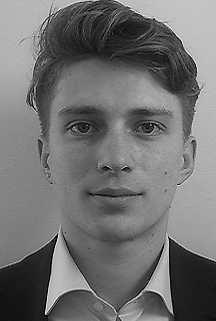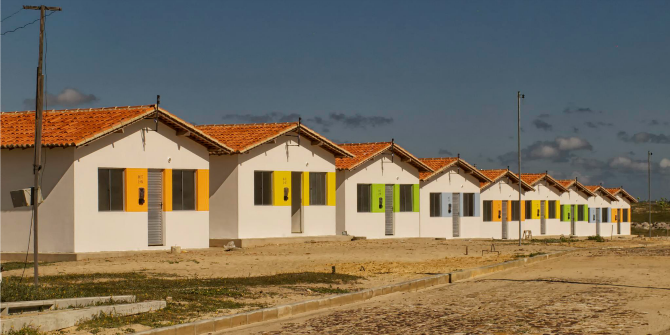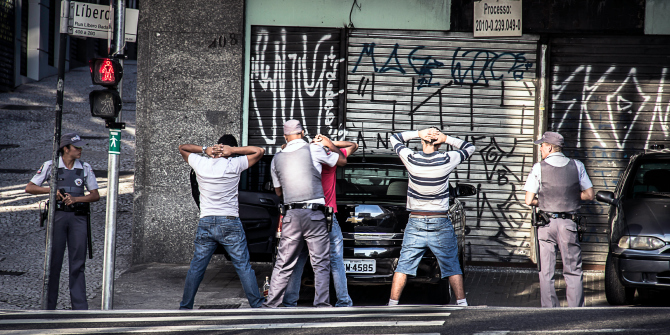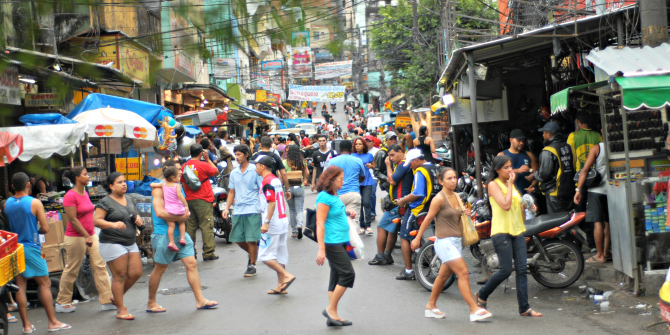 Much has been written about the effects of mega-events and the associated pacification programme in favelas. In this post, Philip Jones proposes that deficit in the control of Minha Casa Minha Vida housing units and of unpacified favelas is shaping a new form of drug-related power dynamics.
Much has been written about the effects of mega-events and the associated pacification programme in favelas. In this post, Philip Jones proposes that deficit in the control of Minha Casa Minha Vida housing units and of unpacified favelas is shaping a new form of drug-related power dynamics.
The announcement that Brazil would host the FIFA World Cup in 2014, and that Rio de Janeiro would host the 2016 Olympics, threw the Rio government into overdrive in an attempt to change the presentation of the city to the world. This plan for Rio to ‘go global’, includes rapid infrastructure improvements for mega-events, while attempting to shrug the perception that Rio is a violent city dominated by drug cartels. Yet, the plan to ‘go global’ is not eliminating the illicit activities of drug cartels, but altering the status-quo of power politics within the murky world of Rio’s narco-traffickers.
The pacification of favelas, coupled with rapid construction for mega-events and demolition of favelas is leading to unaffordable house prices and displacement of favela dwellers. In this post I will argue that the displacement of favela dwellers and narcos has led to new territorial wars among rival cartels in un-pacified favelas. The case of the government led Mina Casa Mina Vida (MCMV) programme additionally shows that despite the government’s intentions to neutralise the power and influence of cartels in the build up to the World Cup and Olympics, social housing has become a power tool for narcos in Rio.
It has been pointed out that the pacification of favelas has relocated drug cartel activity, while favela residents have been displaced due to rising house prices, caused by the pacification and demolition of favelas, to MCMV units has given rise to new power tools for narcos. Yet, it appears that two coinciding vacuums of power are emerging due to the relocation of favela residents into MCMV housing units and pacification of favelas: control of MCMV housing units and the control of un-pacified favelas. The vacuums, and their subsequent filling, are creating a new form of narco power politics.
Vacuum One: Control of un-pacified favelas
Pacifying Police Units (UPPs), designed to rid favelas of narcos, emerged in 2008 shortly after it was announced that Brazil would be hosting the 2014 World Cup. The units have yielded mixed results. Favelas with UPPs have seen a significant (78%) decrease in violent deaths, but UPPs have also left a vacuum of power in the distribution of justice. In UPP zones, where narcos are no longer able to dispense their form of retributive justice, there have been increased reports of rape, threat, and domestic violence.
With the perception that ‘pacified’ favelas have become safer, they are attracting a new demographic of inhabitants that is resulting in unaffordable living prices – Vidigal, a ‘pacified’ favela that long suffered from gang violence has been dubbed the ‘Shoreditch of favelas’ with some house prices shooting up exponentially between 2009 and 2012.
The displacement of favela inhabitants and narcos from burgeoning favelas due to rent and police presence, respectively, is creating a smaller area for cartels to operate. The smaller operational space for narcos has in turn led to increased violence in un-pacified favelas as narcos attempt to maintain their power generated from controlling favelas. Rio’s most wanted narco Celso Pinheiro Pimenta (known as Playboy) is a case in point.
On 19 January 2015, Rio’s military police were called into the favela Morro do Juramento after a weekend of heavy fighting between two of Rio’s largest cartels factions, Amigos dos Amigos, who are purportedly in allegiance with Playboy, and Comando Vermelho (CV). We can surmise that the violence was the result of Playboy trying to increase the profits of his trade which have been reduced by the pacification of previously controlled favelas by forcing the CV out of Morro do Juramento.
Vacuum Two: Control of MCMV housing units
Coupled with the ‘pacification’ programme is the widespread demolition of favelas and construction of urban infrastructure throughout Rio. In order to host mega-events, Rio’s public administration has focused on creating opportunities for investment linked to the sectors of property capital, public works, and private construction (see p. 260 in linked publication).

Favelas that stand in the way of planned infrastructure projects are simply scheduled for demolition, while favela inhabitants are given next to zero warning. The result is the displacement of yet more favela residents. To deal with the displacement of favela residents, the city authority intends to use the MCMV public housing initiative to provide new homes for evicted favela dwellers.
MCMV aims to deliver 1 million ready-to-occupy housing units for the lowest income families, including those displaced by the massive infrastructure projects intended to ready Rio for hosting its mega-events. However, the units are not located in any real proximity to the city. In Rio, they are located in the North and West Zones, far from development opportunity, jobs, and favela dwellers’ families. Moreover, inhabitants of favelas may be unwilling to relocate to them for another reason: they have been turned into an additional power tool and source of income for the narcos .
Narcos use the MCMV units as a tool that can be turned into racketeering opportunities by cartels, both by controlling who is allowed to live in each unit, and dominating drug running operations throughout the complexes. In August 2014 the Civil Police arrested 21 gang members who were grossing $1 million USD per month by charging fees to tenants for safety.
As in the case of Playboy and his allies, this is common practice when warring factions are competing for space. In April 2014 Playboy took control of the MCMV project Haroldo de Andrade I in Rio’s North Zone, evicting close to 80 families that were from the area of Manguinhos linked to a rival narcotrafficker. Playboy then notified his rivals that the houses were for the men who had changed their allegiances and joined his gang.
In their desire to take Rio to the next level and ‘go global’ city planners have aimed to reduce the visibility and activity of drug cartels. However, they have failed to actually confront the problem and have pushed narcotraffickers in two directions simultaneously: vying for operational space in MCMV housing units as well as un-pacified favelas – neither of which is peaceful. The ‘pacification’ of favelas has created a new bubble of violence as narcos shift to new favelas and compete with entrenched gangs for space. Meanwhile, the public housing initiative MCMV has become a new power tool for narcos looking to increase profits. Rio’s longstanding battle with narcos is far from over, it is simply changing.
Featured image credit: Thiago Celestino (CC BY 2.0)
About the Author
Philip Jones is a Communications Officer at Transparency International UK having completed his MSc in Comparative Politics at the LSE in 2014. For his dissertation, he researched the establishment of patronage networks between politicians and drug cartels in Rio de Janeiro’s favelas. This post was written in his personal capacity and does not reflect the views of Transparency International UK.
The views expressed on this post belong solely to the author and should not be taken as the opinion of the Favelas@LSE Blog nor of the LSE.
Please read our comments policy before commenting.





